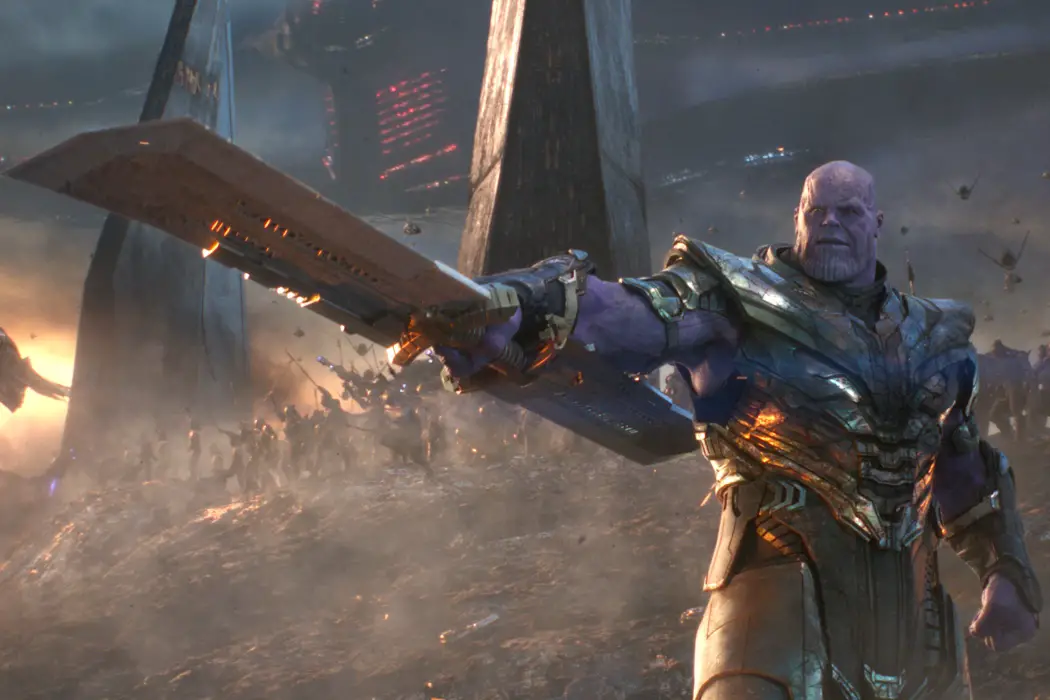Marvel’s Killing Joke & The Unsuspecting Film Industry

23year-old multi-award winning filmmaker and writer from the UK, a…
Slowly, over 11 years and 22 feature films, not to mention some admirable TV shows sprinkled in between, Marvel has been training audiences to return to their screens again and again, in the hope of one incredibly satisfying pay-off – a pay-off that will surely come.
Mirroring the rise of Marvel Studios (and in the background Disney as a whole), was a revolution introducing the streaming industry, Netflix, Amazon Prime, Hulu and soon Disney+, Apple TV+ and Warner Media in HBO MAX. Serialized storytelling has been getting smaller and being sold to audiences in their beds, on the train, anywhere they want now.
But there’s a hidden landscape here, the one of creativity, as audiences hunger for this serial style, more shows are being financed and movies are becoming bigger gambles, which doesn’t concern Marvel, as they’ve evolved with that curve, telling a gigantic film series across this industry-changing decade. Avengers: Endgame was supposedly the end of that journey, but like all things, it didn’t end. It changed.
The One-Two Blockbuster Punch
Over a decade of story and character development behind them, Marvel Studios is a surefire brand, so-called ‘risky’ decisions like hiring James Gunn or Taika Waititi, are the norm for any superhero blockbuster, just see David F. Sandberg’s successful turn with DC and Shazam, then Anna Boden and Ryan Fleck’s Captain Marvel, released just a couple weeks before.
With all that gross, just around $2o billion worth, Marvel faced one lingering criticism, the treatment of death and it’s impermanence. As we started to forget with the introduction of new characters and consistently good films, see the acquisitions of Spider-Man and Fox. Avengers: Infinity War and Avengers: Endgame are both films with extremely carefully crafted stories.

I respect that, though macro-cosmically, together they carry out Marvel’s biggest critique and sin, in the biggest, boldest way possible, it’s almost a joke on the film industry. It’s not necessarily bad; it signifies a shift in storytelling. We were all left on our heels, Thanos’ snap, the ‘decimation’, wiped out half the universe. Nevertheless, one year later, it all came back, just as quickly as it left. However, this wasn’t the only thing that came back, we were given more; we were given possibilities.
The Serial Killing Joke
The idea is as scary as it sounds; Endgame whizzed back and forth through time and the universe and it has changed the fabric of the Marvel Cinematic Universe. It’s also changed our perspective. The films themselves are now limitless entertainment, no risk is too risky. They are unbound by the restrictions of time and space like most films and tv shows are.
This limitlessness creates a circle, we’ve all been built up for Endgame, and whilst yes, some things do come to an end, how long have they ended for? And what the hell are we building up to now? It strikes like a lightning; will we ever see something like Avatar again? Even that’s evolved to a serial format. The industry followed the capital and they’ll keep feeding us more and more, spiraling outward. It doesn’t mean a decline, it means a change.
If the death of half a universe isn’t enough to end a franchise or even taking a break before a collection of reboots, is death itself no longer something to be feared on screen? Where does that leave us now? What does it mean for the future of Marvel, especially after Disney’s acquisition of Fox?
Well, if we’re sat in an IMAX cinema any number of months from now, watching Christopher’s Nolan’s new blockbuster, Tenet (currently shooting) and someone shouts *’multiverse.’ An unsuspecting audience won’t be so unsuspecting, they’ll understand what that means. Say, Robert Pattinson’s character dies in the film, containing this multiverse, the audience will also know what that means. That nothing really dies anymore.
*multiverse: a hypothetical space or realm consisting of a number of universes, of which our own universe is only one

It’s an endless void, this extends to the industry because even property can be mixed and mashed now, Toy Story really could exist in the Marvel Universe; it was only three years ago since Captain America: Civil War, our jaws dropped when Sony and Marvel Studios combined for Spider-Man’s scene-stealing inclusion in a trailer seemed like some fever-dream. It’s 2019 now and Spider-Man: Far From Home, whatever your take on the film, sufficiently seduces us into that fever dream where truly anything is possible via Mysterio and it’s end-credit scenes.
At the same time, other franchises supposedly ‘ended’. And yet Game of Thrones will return in prequels, Saw is being re-imagined by Chris Rock, your favorite TV masterpiece, Sopranos, is coming back for a prequel, heck, even Bill & Ted are returning for another excellent adventure next year. We live in a time where an idea can never end, rest or sleep, and if you’re Disney film you’re repainted with a fresh coat at some point.
Who Did We Bury?
Who did we bury, if nothing dies? Well, the answer isn’t as simple as that, a fitting question is, what is disappearing? What’s being unnoticed? The mid-budget films at the moment, if they’re not good enough to be Academy bait, they’re delivered to streaming services. Don’t worry, streaming services won’t mind. They’ll feed you as much as they can because they don’t have to worry about ticket prices.
It’s still a gamble for them, but it won’t stop them from receiving new content in the future and producing their own when they see fit, not like a production company or independent producers. Annapurna is a clear victim of this changing tide, their 2018 slate had a noticeably awful box-office and they released some pretty good films, If Beale Street Could Talk, The Sister’s Brothers, Vice, and Sorry To Bother You, all had some kind of impact on awards season, if not the one they intended. None brought in the money though, unbelievably, since the time I began this paragraph to when you’ll be reading it, Annapurna’s story has de-escalated into bankruptcy.

Damien Chazelle’s Ryan Gosling starring First Man couldn’t even score a return at the box-office. Notably, his first film to miss out on the heavy award recognition. Chazelle‘s directing a series for Netflix now and Barry Jenkins is working on The Underground Railroad, a series for Amazon. Since we’re back to Annapurna, their recent disappointment was Booksmart, despite favorable reviews, it failed to compete with Disney’s Aladdin remake, which scored over $100m in the US the same weekend.
A remake concedes to a serial cinematic story, a new generation introduced to the same characters, the last two Toy Story films were faux endings and perfect examples, that’s two over two decades. Who’s to say there won’t be another? Toy Story 4 broke world-records for animated box office numbers. Why Not?
The Endgame
Where does that leave us? On a strange trajectory, we’re getting original stories that are more diverse but their sources are becoming more limited. As more fail to bring in box-office numbers, more will be shifted and delivered through streaming, or the filmmaker will get the security of a series on one of those same services. It’s simply where the work is and seems to allow for more artistic creativity.
The types of cinemas we have will probably change and become more divisive. How we judge a film is also changing; we can’t refer to box-office numbers or nominations for reliable evidence of something ‘good’. Just consider some of the movies that picked up Oscars last year (Green Book and Bohemian Rhapsody). Awards just don’t mean what they used to.
Essentially, how we value a piece of media, whether it be a feature film or TV series is in our hands right now, where we spend our money, whether it be at the box-office or which streaming services we commit to, will redefine how we value our entertainment much more specifically than we used to, which is why a long-form creative commitment is more likely to yield the best results (if it works). Because at the end of the day, why end?
It makes much more sense now, why Denis Villeneuve would direct and produce that spin-off Dune series for HBO Max, even after directing two behemoth theatrical Dune releases. If the business model is too ‘retain’ an audience, that’s possible with a story that continues. Hence the decline in ‘one-off’ cinema and a change in what we know as ‘endings’.
The film industry is changing, do you think how stories are told will change too? Let us know in the comments below!
Does content like this matter to you?
Become a Member and support film journalism. Unlock access to all of Film Inquiry`s great articles. Join a community of like-minded readers who are passionate about cinema - get access to our private members Network, give back to independent filmmakers, and more.












